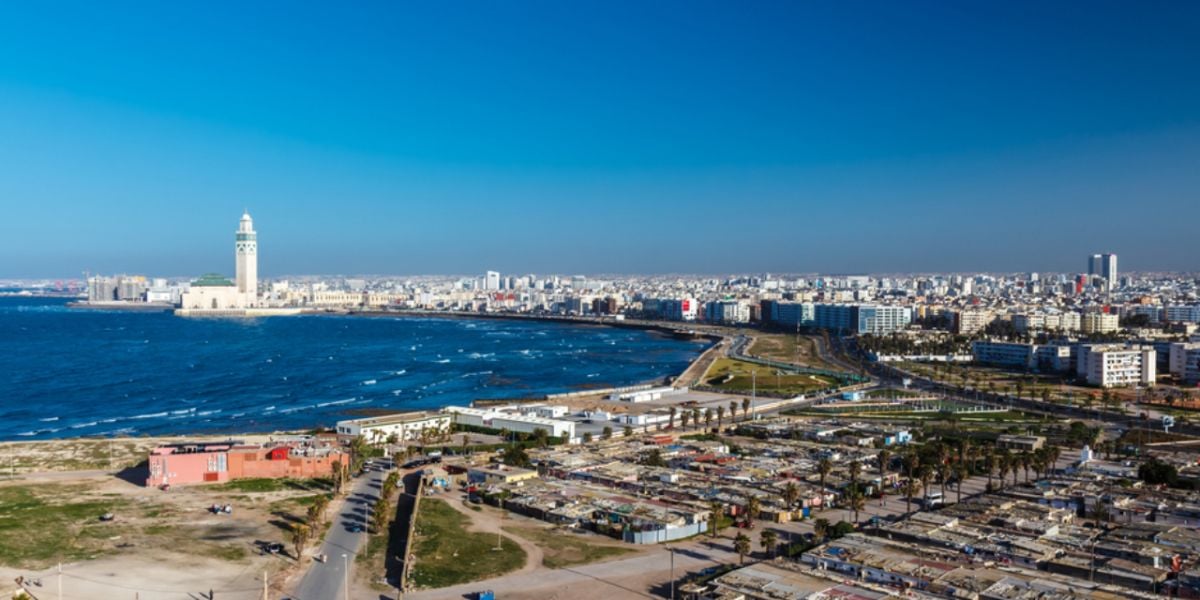
Given the low cost of local labour and the low cost of living in Morocco, many foreign companies have settled in the country. This includes many call centres along with some multinational and international companies. The main employment areas are located in Rabat, Marrakech, Agadir, Tangier and Casablanca.
Types of jobs available in Morocco
Foreigners working in Morocco must go through a process of proving that no Moroccan citizen can do the same job before they are given a work visa. The process is somewhat more straightforward for language teachers who are native speakers, such as for Americans teaching English. If you are working for a multinational company, the process is usually taken care of by your employer. However, if you wish to work for a Moroccan company in a position that could also be taken by a Moroccan, the process is done at the ANAPEC and is usually taken care of by your employer, can be challenging. For this reason, it is generally not possible for expats to work in all sectors. Jobs in multinational companies, call centres, schools, language centres, and charities are the most accessible to expats.
Your best bet as an expatriate seeking employment in Morocco is to apply for mid-level management and beyond, scientific sectors, tech and engineering.
Find in this article a guide to finding a job in various cities in Morocco.
Wages in Morocco
The minimum wage in Morocco is 13,46 dirhams per hour. In the public sector, the monthly minimum is 3000 dirhams. Expats teaching their native language can expect to make at least 10,000 dirhams a month. Also, wages start from 10,000 dirhams for mid-level management jobs
Working hours in Morocco
In Morocco, the legal working time amounts to 40 hours per week in most companies, 45 for call centres and 48 hours in the agricultural sector.
Paid holidays in Morocco
The duration of paid leaves accumulates over time. Employees generally cannot take paid leave during the first six months in a company and accumulate about 1,5 days of leave per month. Morocco offers a maternity leave of 14 weeks (divided into two phases of seven weeks each; before childbirth and after) at 100% pay. Public holidays sum up to 16 days per year (which does not apply for call centres).
Unemployment in Morocco
As of July 2019, the unemployment rate in Morocco settled at 9,3 %, mostly among women and young generations. However, following Morocco's economic strategy consisting of openness to international markets and outsourcing, many international companies have chosen to set offices in Morocco. This explains the need for more skilled professionals, especially in technical fields and management, many of which are held by expatriates living in Morocco.
Self-employment for expatriates in Morocco
You may choose to set up your own company or freelance venture as an expatriate, but for this, you must hold a valid work permit, residence card and the minimum of capital required for the type of activity you practice. Find out more in our article Starting a business in Morocco.
The Labour Code in Morocco
The labour code in Morocco recognises three types of contracts. The CDD (employment for a fixed period), the CDI (employment for an indefinite period) and contract to carry out a specific job. In most sectors (besides agricultural), the CDD is fixed for one year and can only be renewed once. The most common employment contracts are the CDI (employment for an indefinite period), which usually include medical insurance as well as social security, and comes into effect after the probation period (which is either 3 or 6 months depending on the company).
Good to know:
For job hunting in Morocco as an expat, it's better to rely on LinkedIn as most companies willing to hire expatriates tend to be big businesses or international ones.
Promising fields for expatriates in Morocco
Since the main restriction for expatriates seeking to work in Morocco is the fact that if the required expertise for certain positions can be found in Morocco, they won't be held by expatriates. Your best bet is to look for a middle-level management position to an executive position in fields that are only recently beginning to develop the country, such as telecommunication, IT, computer science and tech in general. Keep in mind that if you possess adequate academic pre-requisites, you can find a teaching position even in higher education in these fields). You can also find a job in engineering, architecture, medicine, advertising and media. Other scientific fields are a good bet, but you won't find many job opportunities besides teaching.
Useful links:
Overview of the labour code – English Version
Invest in Morocco
We do our best to provide accurate and up to date information. However, if you have noticed any inaccuracies in this article, please let us know in the comments section below.








